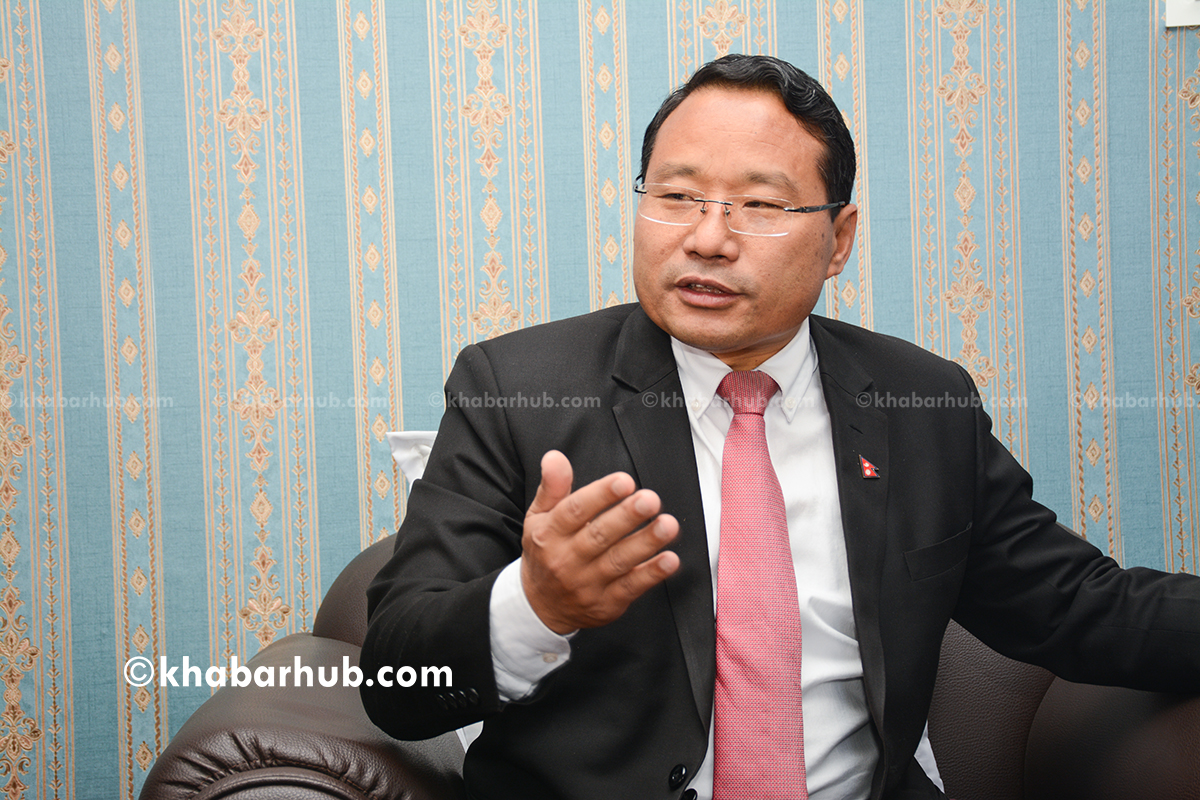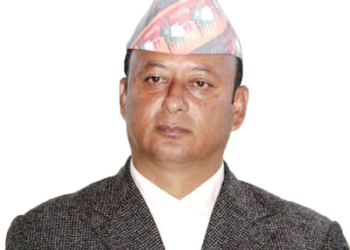KATHMANDU: Finance Minister Barshaman finds himself embroiled in a moral quandary as Prime Minister Pushpa Kamal Dahal has been found to be intervening in the budget formulation process for the upcoming fiscal year.
The Prime Minister’s direct involvement, coupled with his push for distribution-oriented and people-centric programs, has left the Finance Minister in a precarious position ethically.
Prime Minister Dahal’s move to alter predetermined budget limits aims to introduce programs aimed at breaking financial discipline in favor of populist measures.
He is currently seeking to overturn decisions made by the National Planning Commission (NPC), which he chairs, in a bid to further loosen the state’s economic reins.
Previously, PM Dahal had exerted pressure on the Commission to establish a hypothetical budget ceiling of Rs 2.2 trillion. However, the Commission’s submission fell short of Dahal’s expectations.
Recently, Chief Secretary Dr. Baikuntha Aryal, Finance Minister Pun, who also serves as the Maoist Center’s Deputy General Secretary, and Commission Vice Chairman Dr. Meen Bahadur Shrestha were summoned by the Prime Minister to instruct them to draft a budget exceeding Rs 19 trillion.
Regrettably, the Minister finds himself ensnared in turmoil once more, as the Prime Minister’s intrusion into the budget formulation process runs counter to the assurances he made to experts, former finance ministers, and stakeholders.
Meanwhile, Finance Minister Barshaman faces renewed scrutiny after being directed to raise the budget ceiling by at least one trillion rupees.
This activism from Prime Minister Dahal has thrown Finance Minister Pun, who had pledged to craft a realistic budget after consulting experts and former finance ministers, into disarray.
The National Resources Committee, operating under the National Planning Commission, had initially imposed a ceiling of 18 billion rupees on the Ministry of Finance.
With the clock ticking and only 20 days remaining until the budget announcement in parliament, the pressure on the Finance Minister mounts.
As the government prepares to introduce its 100th plan focused on ‘good governance, social justice, and prosperity,’ Prime Minister Dahal’s inclination toward an expansionary budget undermines the notion of fiscal discipline, contradicting the core tenets of good governance.
Budget ceiling stands firm at Rs 1.8 trillion
Dr. Shrestha, leading the National Resource Estimates Committee, has solidified the national resource estimates and expenditure limits for the upcoming three financial years.
According to these projections, even under the most optimistic circumstances, the budget for the next fiscal year cannot surpass 1.8 trillion rupees.
The committee has forecasted the government of Nepal’s total resources, estimating them at 18 trillion rupees for the fiscal year 2081/82, 2.1 trillion rupees for 2082/83, and over 2.4 trillion rupees for 2083/84.
It is anticipated that the economic growth rate will hover around 6, 6.5, and 7 percent, respectively, in the coming three financial years.
Meanwhile, the National Resource Estimates Committee, drawing insights from the Ministry of Finance, Comptroller General’s Office, National Statistics Office, and Nepal Rastra Bank, has analyzed data to determine expenditure limits and resources.
Utilizing projections on economic growth rate, inflation, revenue, foreign aid, and domestic debt mobilization, the committee has established firm boundaries for budgetary considerations.
However, Prime Minister Dahal appears poised to exceed these limits, defying the recommendations of the committee, which he himself chairs.
Finance Minister Pun finds himself once again in turbulent waters. Tasked with crafting a comprehensive budget, Pun is set to make history as the first finance minister in 12 years to present a complete budget.
Despite previously serving as Finance Minister for 18 months during the Dr. Baburam Bhattarai-led Council of Ministers, political upheaval prevented him from delivering a full-fledged budget.
Barring unforeseen shifts in power dynamics within the next 20 days, Pun will etch his name among the select few finance ministers who have successfully navigated Nepal’s economic history with a complete budget.
Finance Minister Pun’s pledge to uphold financial discipline, craft a pragmatic and executable budget, and ensure coherence among policy programs, financial policies, and monetary policies seemed steadfast.
However, recent developments have cast a shadow over his commitments.
Subsequent to severing ties with the Congress and forging a new alliance with CPN-UML, PM Dahal exerted pressure on the commission to further inflate the budget ceiling, aiming for over 2.2 trillion rupees.
During discussions held at the ministry with representatives from the banking and financial sector, Pun reiterated his dedication to maintaining harmony across policy domains.
Similarly, in deliberations with former Finance Ministers, he received counsel to steer clear of ambitious and populist budgetary endeavors.
Former ministers also advised against breaching specified budget ceilings, to which Pun vowed to heed their wisdom.
Regrettably, the Minister finds himself ensnared in turmoil once more, as the Prime Minister’s intrusion into the budget formulation process runs counter to the assurances he made to experts, former finance ministers, and stakeholders.
This interference jeopardizes the realization of Pun’s vision for a prudent and inclusive budget, leaving him grappling with the challenge of reconciling conflicting directives while endeavoring to fulfill his promises.
PM Dahal’s intervention sparks turmoil
Prime Minister Dahal’s intrusion into budgetary affairs has triggered significant upheaval, with his intervention spanning the drafting process of the current fiscal year’s budget.
During his tenure as the finance minister in alliance with the Nepali Congress party, Dahal expressed discontent over the budget size proposed by his predecessor, Dr. Prakash Sharan Mahat, and his subsequent reduction of the budget through a mid-term review.
Dahal’s vision entailed a more expansive budget, earmarked for disbursing government funds to Maoist ex-combatants and party affiliates.
However, Mahat’s reluctance to comply with these directives led to a fracture in the alliance, with PM Dahal deeming the finance minister uncooperative.
Mahat’s term spanned until the preliminary stages of budget preparation and the determination of the ceiling for the forthcoming fiscal year.
Reports surfaced suggesting that Meen Bahadur Shrestha, vice-chairman of the National Planning Commission representing Prime Minister Dahal’s Maoist Center party, aimed to set the budget ceiling above 2.2 trillion rupees in alignment with Dahal’s wishes.
However, widespread criticism from the media and public, coupled with Mahat’s refusal, compelled Shrestha to settle for a ceiling of 1.8 trillion rupees.
Subsequent to severing ties with the Congress and forging a new alliance with CPN-UML, PM Dahal exerted pressure on the commission to further inflate the budget ceiling, aiming for over 2.0 trillion rupees.









Comment